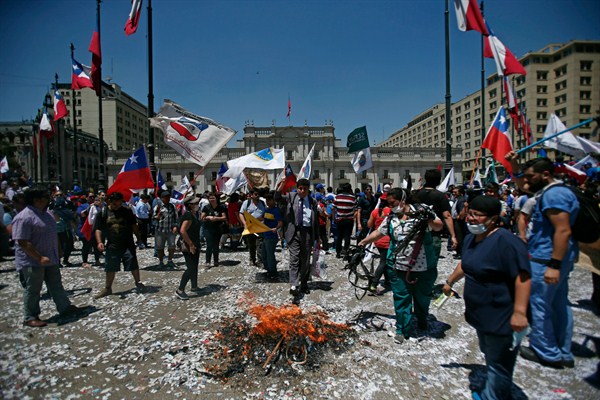A nearly month-long strike by Chile’s public sector employees ended earlier this month after workers failed to win a pay increase of 7 percent and instead reluctantly accepted President Michelle Bachelet’s initial proposal of a 3.2 percent raise. In an email interview, Peter M. Siavelis, a professor of politics and international affairs and the director of the Latin American and Latino studies program at Wake Forest University, discusses labor relations in Chile.
WPR: What are the public sector’s grievances with President Michelle Bachelet’s administration, and how have they affected relations between the government and public employees?
Peter M. Siavelis: The recent strikes by public sector employees in Chile are part of a broader trend of deteriorating relations between social groups and the government that has developed during the second Bachelet government. When it comes to pensions, health care, education and the rights of indigenous people and minorities, there have been constant protests against what is perceived as the fundamental unfairness in the distribution of the fruits of Chile’s economic success during the past 30 years. This is coupled with the inability or unwillingness of the government to reform key institutional and policy legacies from the Pinochet dictatorship. State employees claim that they have also been victims of this injustice and lack of audacity in reforms, with the government turning a blind eye to their grievances. Public sector unions initially demanded a 7 percent increase in salaries, while the government stayed firm in its offer of 3.2 percent. These negotiations and strikes took place against a backdrop of a 4 percent annual inflation rate, meaning that the government’s offer would not even keep pace with steadily rising prices.

